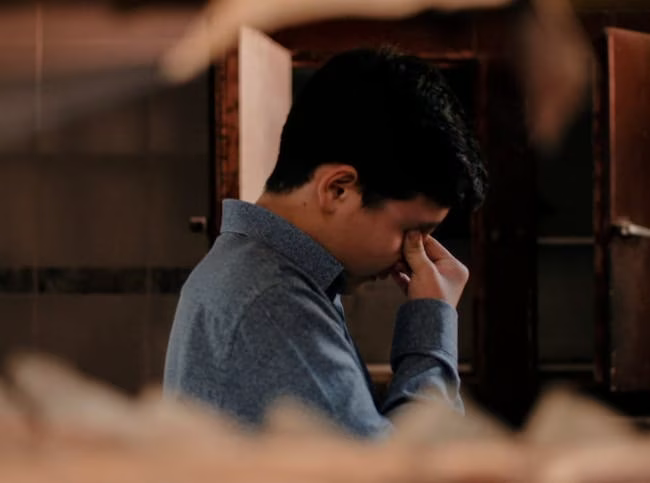Is Anxiety Freedom Without Direction?

Anxiety—as we’ve all seen throughout 2020—can be extremely debilitating. I’ve been thinking about how it relates to other types of mental stress.
I need to be cautious not to beg the question here.
Fear of what’s coming is a good definition, but I’m speaking more specifically about a type of stress that relatively well-off people face when they are inactive.
Suffering, or exhaustion, seem quite different from anxiety and depression because—while they are unpleasant and traumatic—they are often faced during periods of extreme struggle, while anxiety and depression seem less likely in those situations.
It seems that someone with a major drive to do something, and who seems intent on that purpose, is not often anxious or depressed. Or perhaps they’re depression takes the hue of disappointment and discouragement. There’s no question that driven people can be unhappy, but the color of that unhappiness does not seem to match what we see today.
Perhaps I speak of existential depression when I describe what I see today—especially in the US. It’s the anxiety that comes from not knowing what one should do.
This seems to require two things:
Freedom to do multiple things.
A lack of driving purpose.
Freedom is required because if you are restricted from action in some way, by some sort of physical bondage or harsh life circumstance, you essentially get a driving purpose for free. That purpose is to gain freedom. Anyone without it tends to want it badly, and that desire becomes a furnace of purpose and drive. But when someone has freedom but no purpose, the very presence of options can become a ray of paralysis.
People with ideas and plans tend to cherish time alone and time with nothing else to do. It gives them time to explore and articulate their craft or their calling. People without purpose tend to see solitude as torture. Because they have nothing driving them internally, a lack of external stimulation means a lack of any stimulation. To be alone is to spend time with someone who is boring. And to someone who is not driven, being boring is the worst of insults.
The easiest way for this to be solved is not pleasant, which is to have an undeniable force applied to you. Like losing a job if you’re determined to work. Or struggling with a serious health issue. Those situations remove this type of existential anxiety because they create a path for you—the only path—that gets you out of survival mode.
The other option is to cultivate a life purpose that pulls you towards it even if you have 1,000 other options. A life mission of sorts. Or even something smaller, like a project to better yourself or to help other people.
People in the distant past, and even as recently as 50 or 100 years ago—were naturally forced into either survival mode or a career path that forced them forward. So while they might not have been happy, or fulfilled, they were at least not burdened with freedom.
Today is different. There are many mechanisms available today that allow people to be sedentary without starving or being subjected to the elements. Many go on disability and/or live with their parents and family indefinitely. They are able to live in a perpetual state of not being forced to survive and not being forced to choose a path.
Major depression rates rose 63% from 8.1% in 2009 to 13.2% in 2017 among U.S. adults ages 18 to 25.
I think it is that state—more than anything—that is causing the increases in anxiety and depression today.
It’s the poisonous combination of a lack of danger and a lack of drive that I call Soul Rot.
I don’t have the answer, obviously. But I do know that we should identify this as the problem—or at least as one model of it. We need to emphasize to our youth that having a deep purpose in life is the best possible thing one can have for their health and happiness. And that people without such a purpose can want for nothing but still pray for death.
This is one of the most important lessons that nobody ever teaches explicitly. Not most parents, not most schools. Nobody. We hear that it’s nice to have a purpose, but we don’t hear that it’s essential.
We should.
Notes
Helicopter parenting creates a different kind of stress I think, which isn’t anxiety around not knowing what to do, but rather the stress of needing to do something that you may not care about. I have no interest in comparing different types of hardship and stress here. I only wish to say that the stress of getting a Masters degree and great job in some area that doesn’t bring you joy is not quite the same as not doing anything.